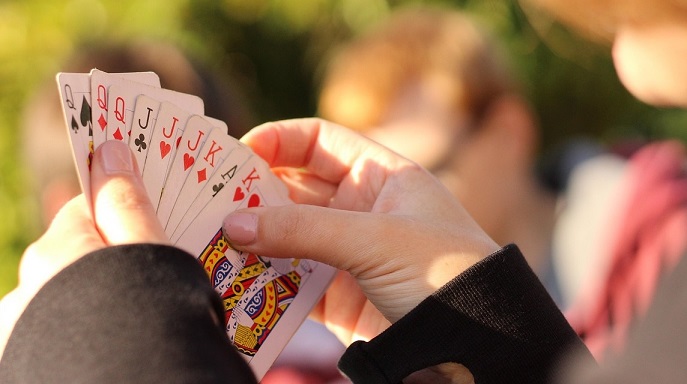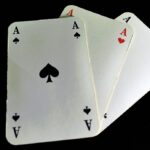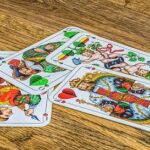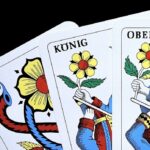
In a world where digital entertainment often dominates, traditional games are making a powerful comeback. Among the most fascinating examples are the popular German card games that have entertained families, friends, and pub-goers for generations.
German card games are not only culturally rich but also deeply strategic and fun, offering something for every type of player. In this guide, you will discover quick overviews of the most loved German card games, learn their basic rules, and understand what makes each one truly special.
Why German Card Games Are So Unique
Germany has a longstanding tradition of crafting games that test wit, memory, and strategy. From chessboards to card decks, gaming has always been more than a pastime in German culture – it is a way of bringing people together.
Family gatherings often include a few spirited rounds of cards, and pub culture is incomplete without a Doppelkopf match or a daring Watten bluff. Over the years, many German card games have even influenced the development of international favorites, proving that these traditional games are timeless.
Top Popular German Card Games You Should Try
Skat
Short history:
Developed around 1810 in the town of Altenburg, Skat quickly became a national pastime and is now officially recognized as Germany’s national card game.
Basic rules and number of players:
Skat is played with three players and a 32-card deck. One player bids to become the soloist and tries to fulfill their chosen contract against the two opponents.
Why it remains Germany’s favorite:
Skat combines deep strategy, memory, and a touch of luck, making every round a fresh mental challenge.
Doppelkopf
What makes it different:
Doppelkopf uses two 24-card decks mixed together, creating a unique dynamic of hidden partnerships and unexpected alliances.
Basic gameplay overview:
Played by four players in two secret teams, Doppelkopf revolves around trick-taking, with bonus points awarded for special card combinations.
Popular settings (pubs, tournaments):
Pubs, social clubs, and regional leagues regularly host Doppelkopf nights, making it both a competitive and social event.
Schafkopf
Bavarian origins:
Schafkopf, considered the “father of Skat,” originated in Bavaria in the late 18th century.
Key rules:
Similar to Skat but more relaxed, Schafkopf focuses on solo plays and partnerships, with fewer formal rules and more regional variations.
Cultural relevance:
It remains a cornerstone of Bavarian culture, often played during beer festivals and local gatherings.
Mau-Mau
Simple rules perfect for kids and families:
Mau-Mau is a shedding game where players race to discard all their cards by matching the top card on the pile by number or suit.
How it inspired modern games like UNO:
Its simplicity and addictiveness directly influenced the creation of the global hit card game UNO.
Rommé (German Rummy)
How Germans adapted the classic Rummy game:
Rommé stays close to traditional Rummy but often allows more flexible sequences and encourages the use of jokers.
Special rules unique to the German version:
Players may meld, lay off, and rearrange existing combinations on the table, adding layers of strategy not found in American Rummy.
Watten
Regional favorite (especially Bavaria and Austria):
Watten is especially beloved in southern Germany and Austria, blending card play with a heavy dose of bluffing.
Bluffing and social aspects:
Signaling secret information to your partner (often non-verbally) is not just allowed but expected, making it both a mental and social game.
Binokel and Gaigel
Historic Swabian games:
Binokel and its faster variant Gaigel come from the Swabian region of Germany, with strong roots in traditional card play.
How they connect to Pinochle:
These games directly influenced the American game of Pinochle, emphasizing melds and trick-taking.
Schwimmen (31)
Quick and fun, easy to learn:
Also known as “Thirty-One,” Schwimmen is a simple, fast-paced game where players aim for the highest card total in a suit.
Gambling element: small stakes and drinks:
Often played with coins or small drinks at stake, Schwimmen is a favorite at casual get-togethers.
Modern and Online Versions of German Card Games
Today, traditional German card games have found new life online. Apps like Skat Online, Doppelkopf Palast, and Mau-Mau Multiplayer allow players to enjoy these classics anytime, anywhere. Online tournaments and platforms have made it easier than ever to learn, practice, and connect with fellow enthusiasts around the world.
Tips for Learning German Card Games Quickly
- Start with Mau-Mau or Schwimmen: Their simple rules make them perfect entry points.
- Watch YouTube tutorials: Visual explanations help grasp tricky rules and strategies faster.
- Join local clubs or play online: Practicing with real players – even online – sharpens your skills far better than reading rules alone.
Learning popular German card games is not just about mastering a set of rules – it is about connecting with centuries of tradition, sharpening your mind, and having endless fun. Whether you dive into the deep strategy of Skat or the lively bluffing of Watten, there is a perfect game waiting for you.
Pick one today, gather some friends (or join an online match), and start playing – you might just discover your new favorite pastime!
FAQs
What is the most popular card game in Germany?
Skat is considered Germany’s most popular and official national card game.
How hard is it to learn Skat?
Skat has a steeper learning curve compared to games like Mau-Mau but becomes highly rewarding once you master the basics.
Are German card games available online?
Yes, many German card games like Skat, Doppelkopf, and Mau-Mau can be played on apps and websites dedicated to traditional card games.
What card games are played in Bavaria?
In Bavaria, Schafkopf and Watten are among the most beloved traditional card games.







